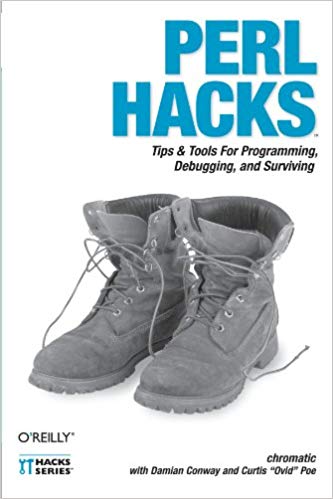I’m rereading book 7 of The Expanse, Persepolis Rising, and thinking about terrorism.
Terrorism is simply the use or threat of violence against non-combatants to effect political or social change. (nb: this is a scholarly definition. Definitions from those approaching terrorism from a policing standpoint tend to focus on tactical considerations).
In reading Persepolis Rising, we sympathize with James Holden and his crew as they commit acts of terrorism against the Laconian dictatorship. If you watched the re-envisioned Battlestar Galactica, season 3 dealt extensively with terrorism, with the humans contemplating using it against the Cylons, including suicide bombings. We again sympathized with terrorists, albeit fictional.
Luigi Mangione is accused of killing Brian Thompson, the CEO of UnitedHealthcare . If he did this to protest the healthcare system in the US, that would make him a terrorist, too.
And that’s where we can explore the nuances of terrorism. Yes, nuances. It’s a hellishly complex topic. When Louise Richardson, a well-respected scholar on terrorism, wrote her now famous book, What Terrorists Want , she talked about her first time teaching an “Introduction to Terrorism” class. The class was hard, tons of homework, and could not contribute to a degree. She wanted serious students who cared about the topic, not tourists.
The students were asked about career goals and they invariably spoke about becoming lawyers, joining the military, or other roles which might require them to understand this subject. These students were each assigned a terrorist group to report on at the end of term. The catch? They had to use source material for their research. No popular news articles or Youtube videos for them (/me looks pointedly at vaccine deniers).
All of the students would begin their presentation with something along the lines of “the other groups might be terrorists, but this group has real grievances ...”
What? How could terrorists have real grievances? The terrorists have a narrative. As it turns out, the victims have a different narrative and so long as they’re not willing to hear the other narrative, they’re reduced to responding to violence with violence.
But why did I mention Luigi Mangione? There are some who applaud his actions as a step towards ending the brutal health care system in the US. There are many more, however, who condemn his actions, but have sympathy for why he took them.
Why is this important? Louise Richardson discusses the three traits you should have to have an impactful terrorist.
- A disaffected individual
- A legitimizing narrative
- A sympathetic population
An unhappy group of people telling a story about why they have no choice but to resort to violence? OK, we can understand that, even if we don’t agree, but what’s with the sympathetic population?
If we witness the events in Ireland during The Troubles, many of the population did not support violence, but were nonetheless unhappy with the UK claiming part of Ireland. They mistrusted the British troops stationed there and were horrified by Bloody Sunday, where British troops opened fire on unarmed civilians during a protest, killing many of them. Thus, even if they didn’t approve of violence, they weren’t going to turn over “their own” to the British.
Even those Irish who might have been inclined to turn in the terrorists were likely to be hesitant to do so due to social pressure.
But again, what does this have to do with Luigi Mangione? From the response to the murder, we see:
- A disaffected individual
- A legitimizing—and compelling—narrative
- A sympathetic population
But is he effective?
Andrew Witty, CEO of UnitedHealth Group, Vin Gupta, chief medical officer of Amazon Pharmacy, and Caroline Roan, Pfizer’s chief sustainability officer, all admitted after the attack that our health care system needs reform.
Insurance companies are investing more in personal security, switching to video events instead of in-person events, taking down web site images of their leadership teams, and Anthem BlueCross BlueShield reversed a recent policy decision to discontinue coverage for certain anaesthesia services. There are also anecdotal reports from people that their insurance companies have started approving previously denied claims.
Of course, we can’t prove that these actions were in response to the murder, but the timing of all suggests that it is.
So in the short term, we can argue that the murder had an impact that some people view positively, even while they condemn the crime. However, these are band-aid measures and none of them fix the systemic problem.
If there are copycat attempts, this situation could get much worse. All of this, of course, was avoidable, but if this incident were to become a trend, I can tell you what’s likely to happen (with the caveat that I’m using stereotypes here).
The Democrats will demand change, but be powerless to do anything.
The Republicans will present their version of the story and not hear the other version of the story, thus ensuring that the groundwork for violence is preserved.
At no point am I endorsing violence. Indeed, Louise Richardson argues in her work that the African National Congress (ANC) that fought against apartheid in South Africa might have a claim to be the only legitimate terrorist movement. But just because I abhor violence doesn’t mean the underlying motivations are wrong, and so long as we ignore those motivations, we risk perpetuating the very conditions that lead to violence in the first place.
So if you’re read this far (thank you!), you might wonder why I included The Expanse and Battlestar Galactica examples? If I asked “is suicide bombing OK,” or “is terrorism OK,” many people would reject this out of hand because of course violence is wrong. But because our sympathy with the “good guy terrorists” was a direct result of hearing their story, we can understand that sometimes it’s hard to know the right course of action. This in no way is me endorsing violence, but given the online calls for further violence, it’s fair to say that even others who might not endorse violence might, nonetheless, conclude it’s the only way to effect change.
Only by being willing to listen and keep an open mind can we hope to deal with these challenges.


